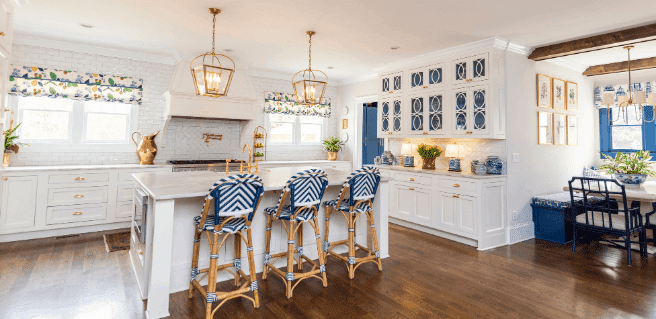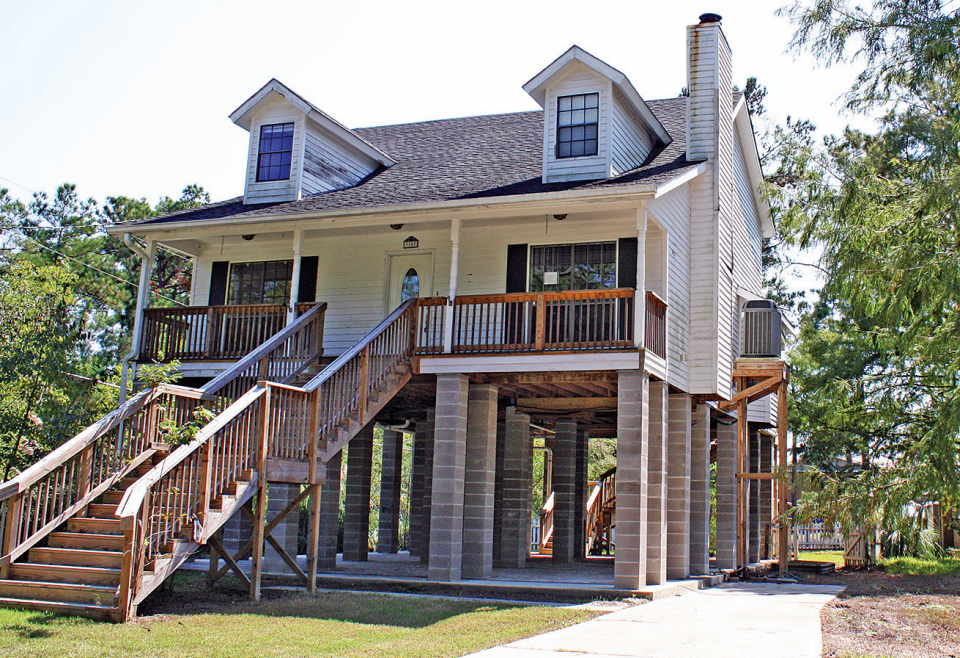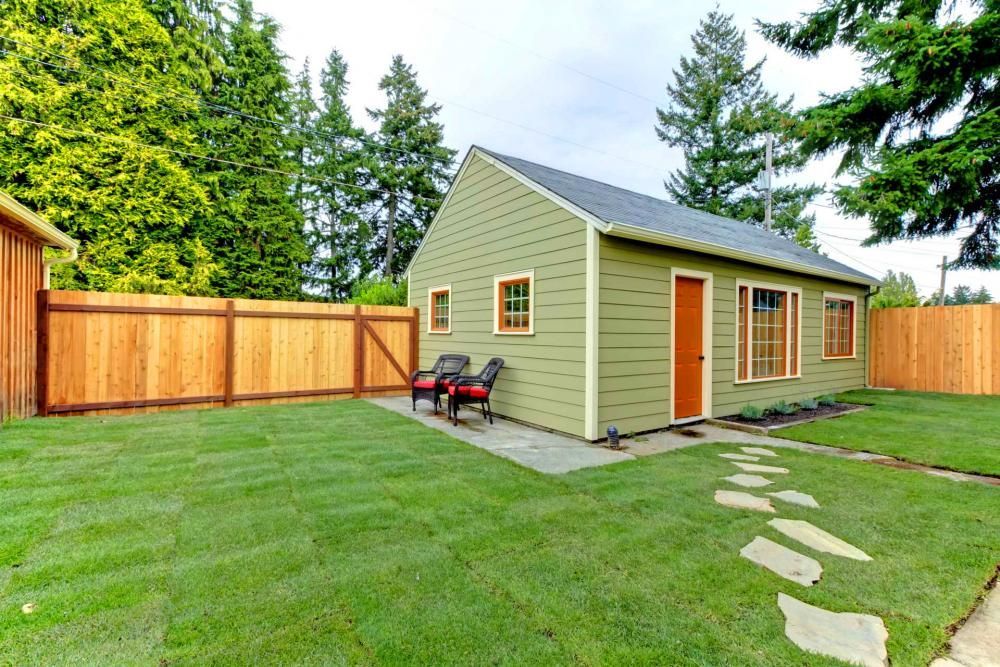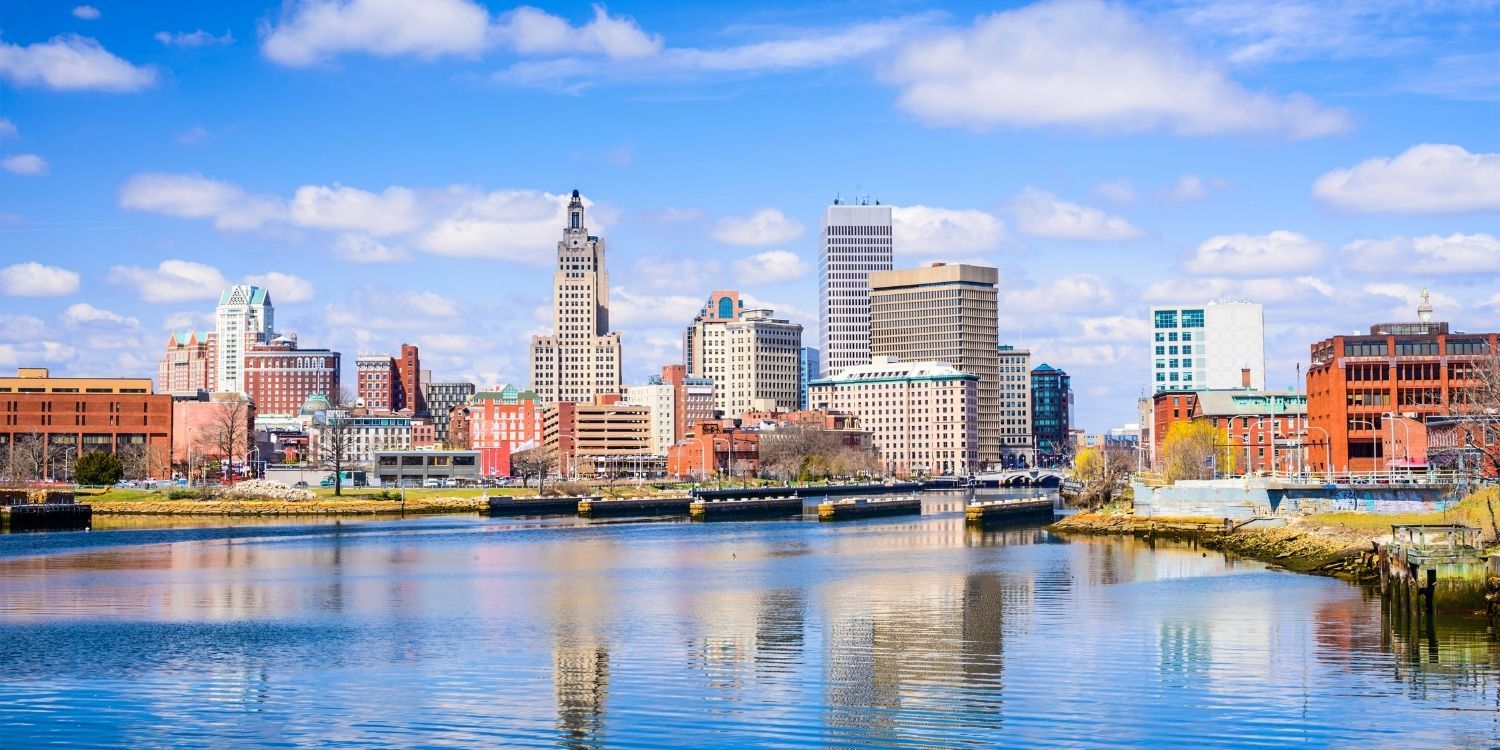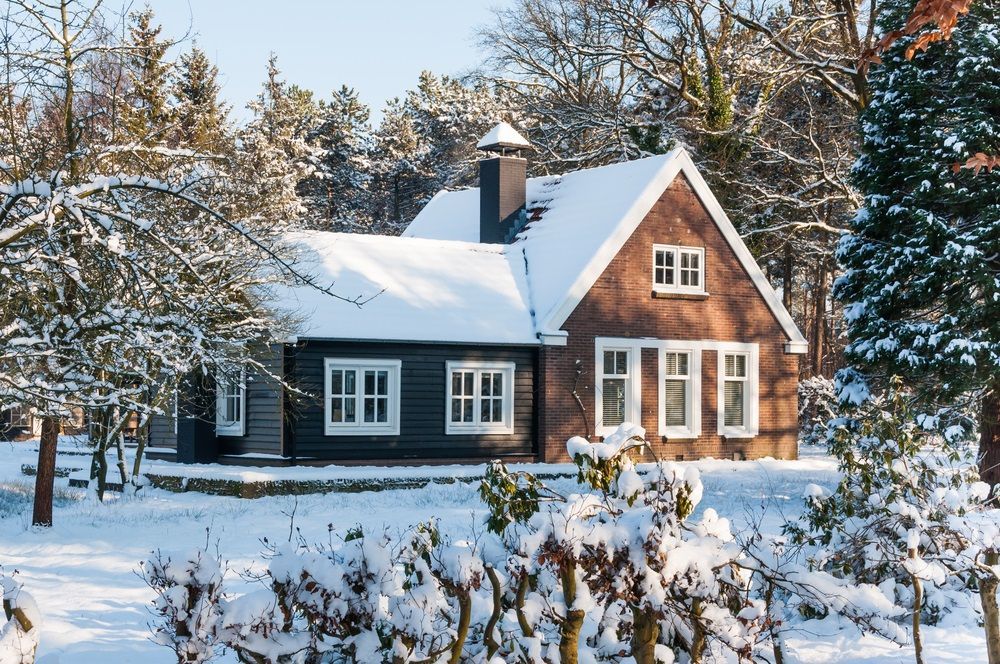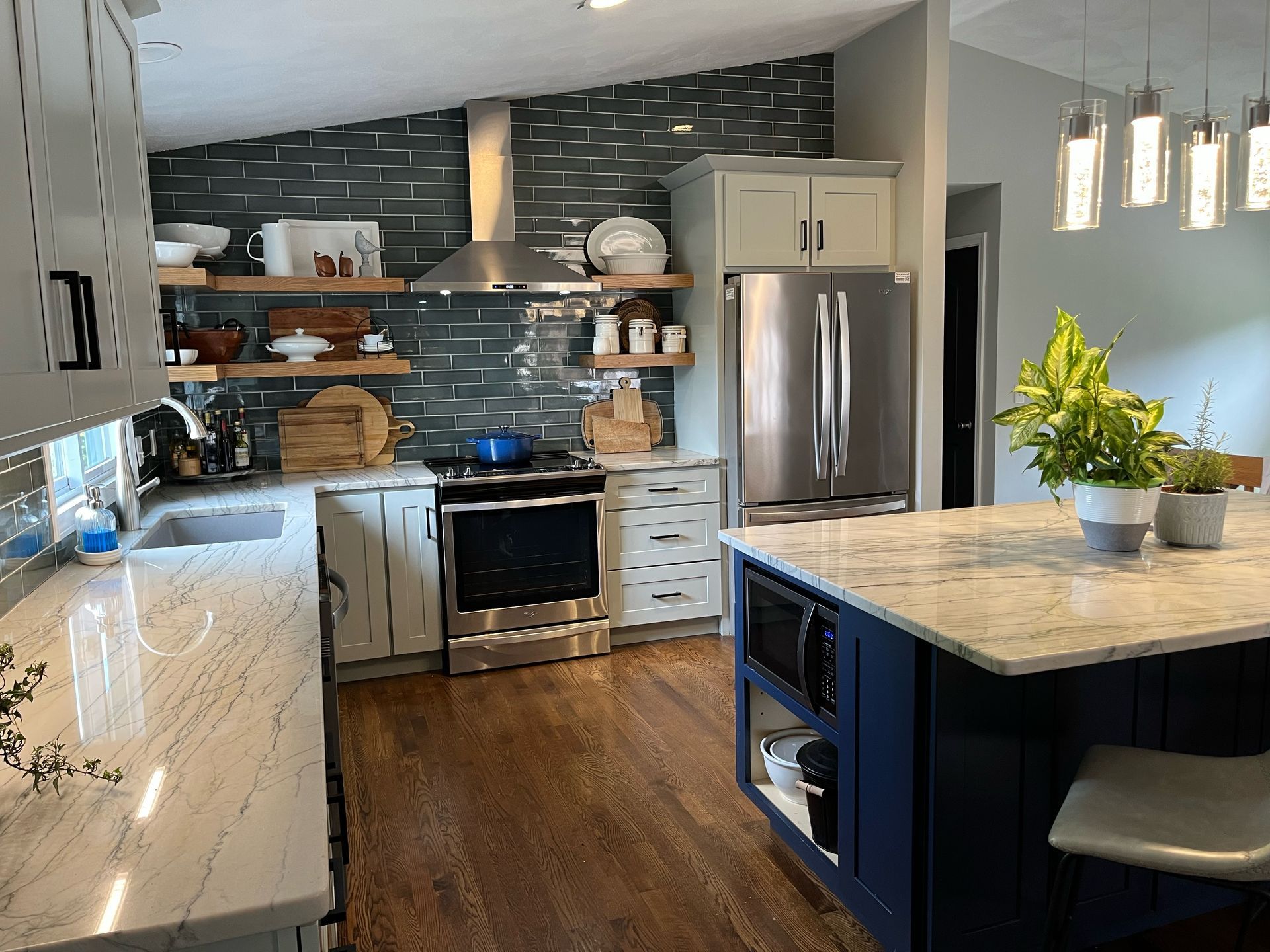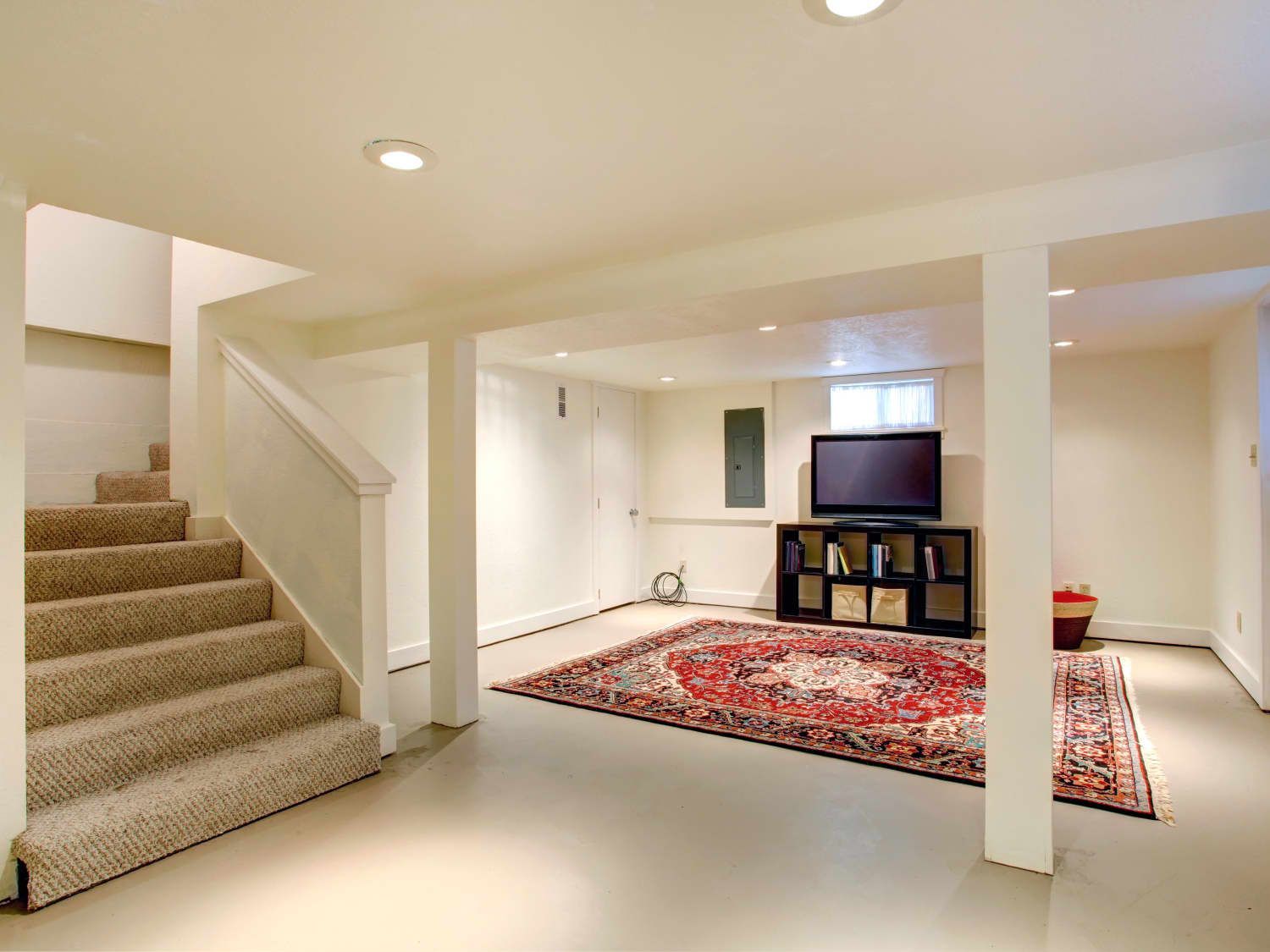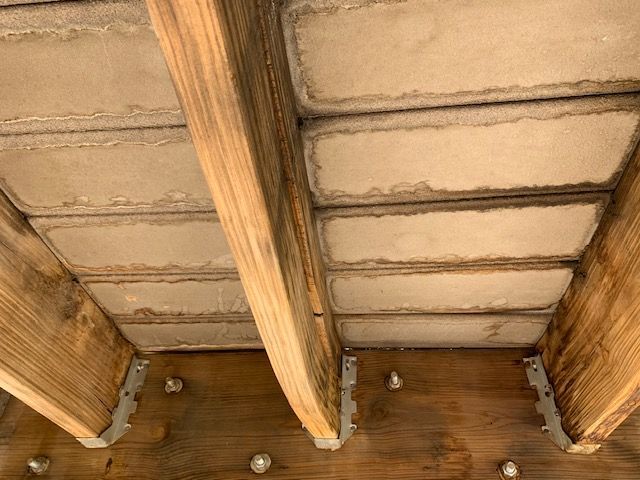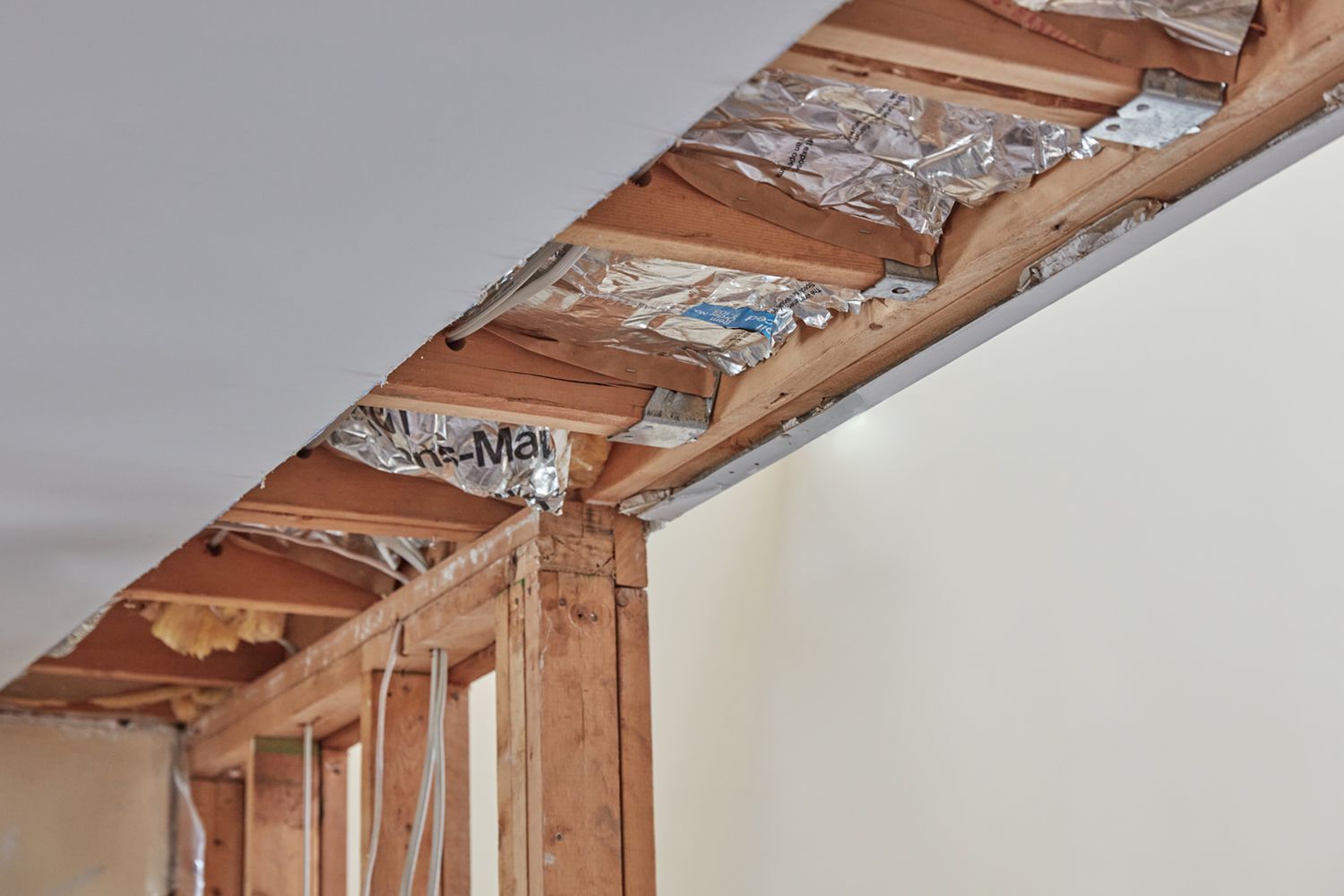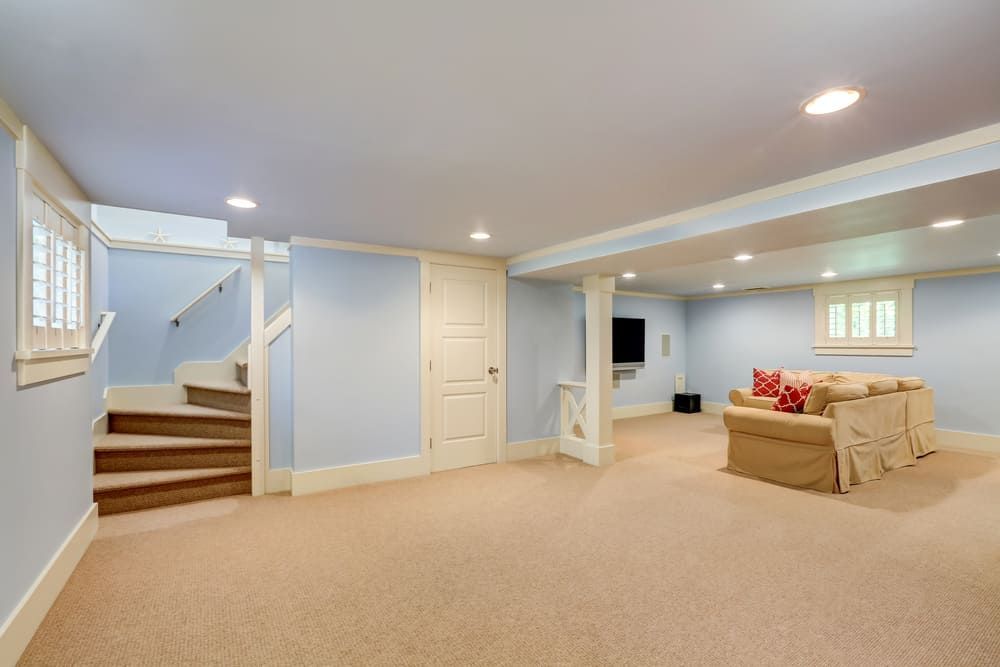Garage Drywall Repair - Rhode Island
Garage drywall damage is one of the most common issues facing Rhode Island homeowners. From Providence to Newport, Warwick to Cranston, the Ocean State's harsh winters, coastal humidity, and temperature fluctuations create the perfect conditions for drywall problems. Whether you're dealing with cracks, holes, water damage, or crumbling drywall, understanding your repair options can save you time and money while protecting your home's value.
Why Garage Drywall Fails in Rhode Island
Rhode Island's climate is particularly tough on garage drywall. Unlike climate-controlled living spaces, garages experience extreme temperature swings and moisture exposure that accelerate deterioration.
Common Causes of Garage Drywall Damage in RI
Moisture and Humidity: Rhode Island's coastal location brings persistent humidity, especially in summer months. Garages often lack proper ventilation, causing moisture to accumulate behind drywall. This is particularly problematic in coastal communities like Narragansett, South Kingstown, and Middletown where salt air compounds the issue.
Freeze-Thaw Cycles: New England winters subject unheated garages to repeated freezing and thawing. Water penetrates small cracks, freezes, expands, and creates larger damage. Providence, Pawtucket, and Woonsocket homeowners often see this accelerated damage pattern.
Water Infiltration: Poor drainage, roof leaks, or flooding during Rhode Island's heavy rainstorms and nor'easters can saturate garage drywall. Once wet, standard drywall loses structural integrity and may harbor mold.
Impact Damage: Everyday garage use creates holes and dents from opening car doors, moving equipment, hanging tools, or sports equipment impacts.
Settling and Foundation Issues: Rhode Island's varied soil conditions can cause foundation settling, leading to cracks in drywall seams and corners.
Age and Deterioration: Older homes throughout Rhode Island, particularly in historic areas of Providence, Newport, and Bristol, often have original drywall that has reached the end of its lifespan.
How to Identify Drywall Damage in Your Rhode Island Garage
Visible Signs to Look For
Cracks and Splits: Hairline cracks along seams or corners, or larger cracks radiating from stress points. Vertical cracks often indicate settling, while horizontal cracks may suggest moisture issues.
Water Stains: Yellow, brown, or dark stains indicate current or past water infiltration. In Rhode Island garages, check especially after heavy rain or snowmelt.
Soft or Crumbling Drywall: Press gently on suspected areas. Drywall should be firm. Soft, spongy, or crumbling sections indicate water damage requiring immediate attention.
Bubbling or Peeling: Paint bubbling or tape peeling from seams signals moisture trapped behind the surface.
Holes and Dents: From minor dings to large punctures, these are obvious damage points.
Mold or Mildew: Black, green, or white growth on drywall surfaces. Given Rhode Island's humidity, mold can develop quickly in damp garage environments.
Sagging or Bowing: Drywall pulling away from studs or ceiling joists indicates serious structural concerns.
When to Repair vs. Replace
Small Repairs (DIY-Friendly):
- Holes smaller than 4 inches
- Hairline cracks less than 1/8 inch wide
- Minor dents or dings
- Small water stains after source is fixed
Professional Repair Needed:
- Large holes (4+ inches)
- Multiple damaged areas
- Cracks wider than 1/8 inch
- Extensive water damage
- Any mold presence
- Structural concerns
Full Replacement Required:
- Drywall saturated with water
- Extensive mold growth
- Multiple large damaged sections
- Crumbling or deteriorating drywall
- Outdated materials in older RI homes
DIY Garage Drywall Repair: Step-by-Step Guide
For Rhode Island homeowners comfortable with basic repairs, small drywall fixes are manageable weekend projects.
Tools and Materials Needed
- Joint compound (setting-type for faster drying in humid RI conditions)
- Drywall tape (paper or mesh)
- Putty knife (4-inch and 6-inch)
- Sanding sponge or sandpaper (120-grit and 220-grit)
- Drywall saw or utility knife
- Drywall patch kit for larger holes
- Primer and paint
- Drop cloth
- Safety glasses and dust mask
Repairing Small Holes (Less Than 1 Inch)
- Clean the area: Remove loose debris and dust around the hole
- Apply spackle: Use putty knife to fill hole slightly overfull
- Let dry completely: In Rhode Island's humid conditions, allow 24 hours
- Sand smooth: Use 220-grit sandpaper until flush with wall
- Prime and paint: Match existing garage wall color
Fixing Medium Holes (1-4 Inches)
- Cut a clean edge: Use utility knife to create straight edges around damage
- Install backing: Place wood or drywall behind hole for support
- Cut patch piece: Measure and cut drywall slightly smaller than hole
- Secure patch: Screw to backing material
- Apply tape and compound: Cover seams with tape, then three coats of compound
- Sand between coats: Feather edges for seamless finish
- Prime and paint: Complete the repair
Repairing Cracks
- Widen the crack: Use utility knife to create a slight V-groove
- Apply compound: Fill crack completely
- Apply tape: Embed paper tape over compound while wet
- Apply additional coats: Two more thin coats, each sanded when dry
- Sand smooth: Blend edges into surrounding wall
- Prime and paint: Finish to match existing surface
Addressing Water-Damaged Drywall
Important: Water damage requires addressing the moisture source first. In Rhode Island, this might mean:
- Fixing roof leaks
- Improving gutters and drainage
- Repairing foundation cracks
- Installing vapor barriers
- Adding ventilation or dehumidification
Once the source is resolved:
- Remove damaged section: Cut out all soft, stained, or moldy drywall
- Dry thoroughly: Allow studs to dry completely (may take days in humid RI weather)
- Treat for mold: If mold present, treat with appropriate cleaner
- Install moisture-resistant drywall: Use green board or purple board for replacement
- Complete normal finishing: Tape, mud, sand, prime, and paint
Professional Garage Drywall Repair in Rhode Island
When to Call a Professional
Rhode Island homeowners should consider professional help for:
Extensive Damage: Multiple walls affected or damage covering large areas. Professional crews can complete work faster and ensure consistent quality.
Mold Issues: Any visible mold requires professional assessment and proper remediation following Rhode Island health and safety guidelines.
Structural Concerns: Cracks indicating foundation problems or structural movement need expert evaluation before cosmetic repairs.
Moisture Source Uncertainty: If you can't identify why drywall is damaged, professionals can diagnose underlying issues common in RI homes.
Time Constraints: Professional crews complete repairs quickly, minimizing disruption to your garage use.
Matching Textures: Older Rhode Island homes may have textured drywall difficult to replicate without experience.
Code Compliance: If converting your garage or making it habitable space, professionals ensure work meets Rhode Island building codes.
What to Expect from Professional Service
Inspection and Assessment: Thorough evaluation of damage extent and underlying causes. In Rhode Island, this includes moisture testing and mold inspection.
Detailed Estimate: Written quote covering materials, labor, and timeline. Rhode Island contractors should be licensed and insured.
Proper Preparation: Protection of your garage contents, vehicles, and adjacent spaces from dust and debris.
Quality Materials: Professional-grade compounds, moisture-resistant drywall appropriate for RI climate, and proper tools.
Expert Technique: Seamless repairs that blend perfectly with existing walls. Proper taping, multiple thin coats, and professional-level sanding.
Clean-up: Complete removal of debris and dust, leaving your garage ready to use.
Warranty: Reputable Rhode Island contractors stand behind their work with guarantees.
Cost of Garage Drywall Repair in Rhode Island
Understanding typical costs helps Rhode Island homeowners budget appropriately.
DIY Cost Estimates
Small repair (under 1 inch): $10-$25
- Spackle, sandpaper, and paint
Medium repair (1-4 inches): $25-$75
- Patch kit, compound, tape, and finishing materials
Large repair or multiple areas: $75-$200
- Additional drywall sheets, more compound, and tools if needed
Professional Repair Costs in RI
Small hole repair: $100-$200 per hole
- Includes prep, patching, finishing, and painting
Medium to large hole repair: $200-$400 per area
- More extensive work and materials
Water damage repair: $300-$800 per wall
- Depends on damage extent and if mold remediation needed
Full wall replacement: $600-$1,500 per wall
- Includes removal, disposal, installation, and finishing
- Rhode Island labor rates typically 10-20% above national average
Complete garage drywall: $2,000-$6,000+
- For full garage re-drywall projects
- Varies by garage size and finish level
Mold remediation: Additional $500-$3,000
- Required for any mold-affected drywall in RI
Rhode Island contractors factor in disposal fees, travel to Providence metro area or coastal locations, and seasonal demand when pricing projects.
Choosing Moisture-Resistant Drywall for RI Garages
Standard drywall isn't ideal for Rhode Island garage environments. Consider these alternatives:
Green Board (Moisture-Resistant Drywall)
Best for: Rhode Island garages with humidity concerns but no direct water exposure
Features:
- Water-resistant paper facing
- Better moisture tolerance than standard drywall
- Similar installation to regular drywall
- Affordable upgrade ($2-4 more per sheet)
Ideal locations: Providence suburbs, inland RI communities
Purple Board (Mold-Resistant Drywall)
Best for: Coastal Rhode Island garages, flood-prone areas
Features:
- Superior mold and moisture resistance
- Performs well in high-humidity environments
- More durable than green board
- Moderate price increase ($8-12 more per sheet)
Ideal locations: Newport, Narragansett, Barrington, coastal communities
Cement Board
Best for: Areas with direct water exposure or severe Rhode Island coastal conditions
Features:
- Completely waterproof
- Will not support mold growth
- Extremely durable
- Requires different installation techniques
- Higher cost ($15-25 more per sheet)
Ideal locations: Flood zones, below-grade garages, extreme coastal exposure
Fiberglass-Faced Gypsum Board
Best for: Maximum moisture and mold protection
Features:
- No paper facing to support mold
- Excellent moisture resistance
- Professional installation recommended
- Premium pricing
Ideal locations: Problem garages with history of moisture issues
Preventing Future Drywall Damage in Rhode Island Garages
Moisture Control Strategies
Improve Ventilation: Install vents, exhaust fans, or open windows regularly. Rhode Island's humid summers demand air circulation.
Use Dehumidifiers: Especially important for coastal RI properties. Maintain humidity below 50%.
Fix Water Sources: Address roof leaks, gutter problems, and drainage issues immediately. Rhode Island's heavy precipitation makes this critical.
Install Vapor Barriers: Particularly important in unheated Rhode Island garages. Prevents moisture migration from outside.
Seal Gaps: Weatherstrip doors and seal penetrations to prevent moisture infiltration and improve energy efficiency.
Temperature Management
Insulate Properly: Helps moderate temperature swings that stress drywall. Important for Providence area winters.
Heat if Possible: Maintaining above-freezing temperatures prevents freeze-thaw damage cycles.
Allow Gradual Temperature Changes: Avoid rapid heating of frozen garages when possible.
Protective Measures
Install Wall Protection: Use corner guards, bumpers, or protective panels in high-traffic areas.
Organize Strategically: Keep heavy items away from walls where possible.
Regular Inspections: Check for early signs of damage, especially after Rhode Island storms or extreme weather.
Maintain Drainage: Keep gutters clean and ensure proper grading around your garage. Rhode Island's clay soils can hold water.
Address Foundation Issues: Fix cracks or settling promptly to prevent drywall damage.
Paint and Finish
Use Quality Paint: Semi-gloss or satin finishes resist moisture better than flat paint.
Mold-Resistant Paint: Contains fungicides to prevent mold growth in humid Rhode Island conditions.
Regular Maintenance: Touch up paint as needed to maintain protective barrier.
Rhode Island Building Codes and Permits
When You Need Permits
Most basic drywall repairs in Rhode Island don't require permits. However, you may need permits for:
Structural Changes: Removing walls or significantly altering garage structure
Converting to Living Space: If finishing garage to code for habitation
Electrical or Plumbing Work: Associated with garage upgrades
Fire-Rated Assemblies: Garages attached to homes have fire-rating requirements
Rhode Island Code Considerations
Fire Safety: Drywall between attached garage and living space must be 5/8-inch Type X (fire-rated)
Moisture Protection: While not always code-required, moisture-resistant drywall is recommended for RI garages
Ventilation: Building codes may require minimum ventilation standards
Municipal Variations: Providence, Warwick, Cranston, and other RI cities may have additional local requirements
Always check with your local building department before starting major projects.
Garage Drywall Repair Timeline
DIY Small Repair
- Preparation and repair: 1-2 hours
- Drying time: 24 hours (longer in humid RI weather)
- Sanding and finishing: 1 hour
- Painting: 1-2 hours plus drying
- Total: 2-3 days
DIY Large Repair
- Preparation and patching: 3-5 hours
- Multiple compound coats: 3-5 days (drying between coats)
- Sanding: 2-3 hours
- Priming and painting: 3-4 hours plus drying
- Total: 1-2 weeks
Professional Repair
- Assessment: Same day or next day
- Small repairs: Same day completion possible
- Medium repairs: 1-2 days
- Large or water damage repairs: 3-7 days
- Complete garage re-drywall: 1-3 weeks
Rhode Island's weather can impact timelines, especially for projects requiring ventilation during humid summer months or in unheated garages during winter.
Common Mistakes to Avoid
Using Wrong Materials
Don't use standard drywall in moisture-prone Rhode Island garages. The small additional cost for moisture-resistant products prevents future problems.
Ignoring the Root Cause
Repairing drywall without fixing underlying moisture, structural, or drainage issues means the damage will return. This is especially important in coastal and low-lying Rhode Island areas.
Rushing Drying Time
Rhode Island's humidity means compound takes longer to dry. Be patient between coats or you'll get poor adhesion and finish quality.
Skipping Mold Treatment
If mold is present, proper remediation is essential. Simply covering it causes health issues and continued deterioration.
Over-Sanding
Too much sanding creates valleys and uneven surfaces. Light passes with proper technique work better.
Applying Too Much Compound
Thick applications crack as they dry. Multiple thin coats produce better results and are easier to sand.
Poor Surface Preparation
Not cleaning dust or priming before painting leads to poor adhesion and visible repairs.
Ignoring Safety
Always wear dust masks when sanding drywall compound. The fine dust is harmful when inhaled, especially in enclosed garage spaces.
Seasonal Considerations for Rhode Island Garage Drywall
Winter Repairs (December-February)
Challenges:
- Cold temperatures slow compound drying
- Unheated garages make work uncomfortable
- Freezing conditions affect material performance
Solutions:
- Use quick-set compounds when possible
- Heat garage temporarily during work
- Allow extra drying time
- Plan major projects for other seasons
Spring Repairs (March-May)
Advantages:
- Moderate temperatures ideal for drying
- Can open garage for ventilation
- Before summer humidity sets in
- Good time to address winter damage
Considerations:
- Watch for early-season rain infiltration
- Address any freeze-thaw damage discovered
- Prime season for Rhode Island contractors (book early)
Summer Repairs (June-August)
Challenges:
- High humidity slows drying in coastal RI
- Heat makes physical work more demanding
- Peak season for contractors means less availability
Solutions:
- Use dehumidifiers to speed drying
- Work during cooler morning hours
- Ensure excellent ventilation
- Consider fast-setting compounds
Fall Repairs (September-November)
Advantages:
- Ideal temperatures and lower humidity
- Perfect time to prepare garage for winter
- Contractor availability increases
- Comfortable working conditions
Priority:
- Complete before winter weather arrives
- Address any summer moisture damage
- Prepare garage for harsh RI winter ahead
Garage Conversion and Upgrade Considerations
If your drywall repair project is part of a larger garage upgrade, consider:
Converting to Finished Space
Insulation Requirements: Rhode Island winters demand proper insulation (R-19 to R-21 walls)
Climate Control: Mini-splits work well for garage HVAC in RI
Moisture Barriers: Essential for preventing future drywall problems
Code Compliance: Must meet residential building codes if converting to living space
Creating Workshop or Studio
Durable Finishes: Consider impact-resistant drywall or protective panels
Electrical Upgrades: Plan for adequate outlets and circuits
Ventilation: Important for dust control and air quality
Building Home Gym
Moisture-Resistant Materials: Essential given sweat and humidity from workouts
Durable Surfaces: Consider alternatives like cement board in high-impact areas
Climate Control: Proper HVAC for year-round comfort
Rockhouse Construction specializes in garage drywall repair and restoration throughout Rhode Island. From simple patches to complete garage finishing, we handle projects of all sizes in Providence, Warwick, Cranston, Newport, Pawtucket, and communities across the Ocean State. Our team uses moisture-resistant materials appropriate for Rhode Island's coastal climate and guarantees quality workmanship that lasts.
We understand how Rhode Island's weather affects your garage and provide solutions that address both immediate damage and underlying causes. Every project includes proper moisture assessment, mold inspection, and recommendations to prevent future problems.
Contact us today for a free estimate on your garage drywall repair. Let our experienced team restore your garage with professional results that stand up to Rhode Island's toughest conditions.
